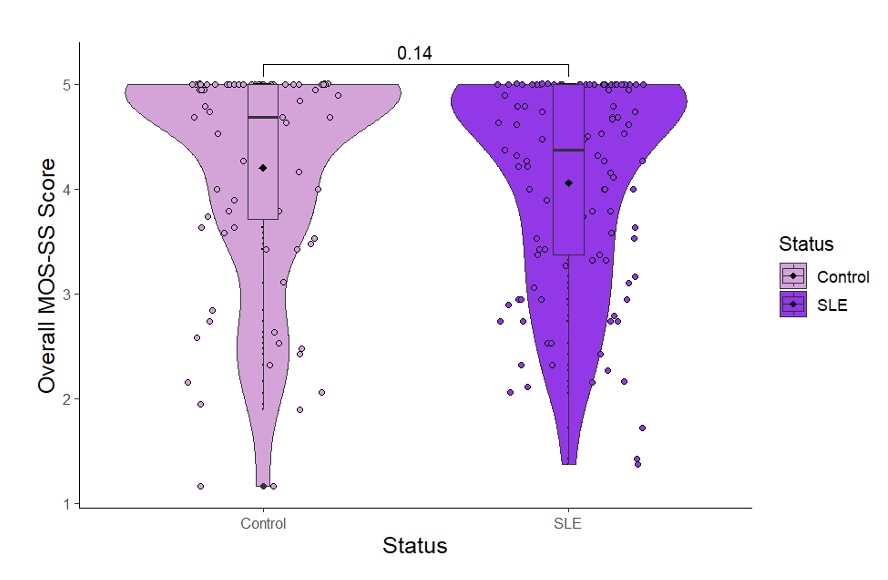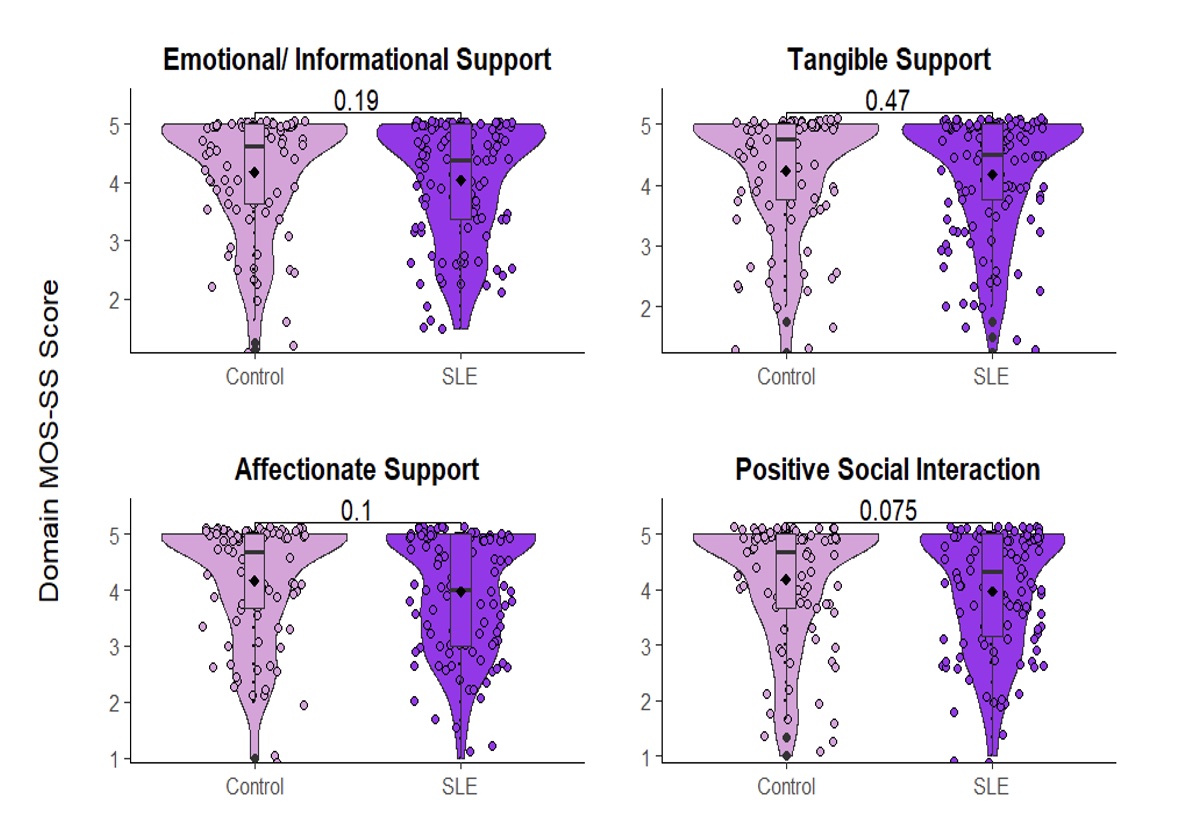Session Information
Session Type: Poster Session A
Session Time: 10:30AM-12:30PM
Background/Purpose: Systemic lupus erythematosus (SLE) disproportionately impacts African American women. However, this health disparity population continues to be underrepresented in research. Research suggests that social support may have a positive impact in SLE and as such could potentially reduce disease burden. However, despite the potential impact on SLE, the relationship between social support and SLE disease outcomes has not been investigated in African American female patients with SLE. The goal of this study is to understand the relationship between social support and disease outcomes using data from validated participant questionnaires that are being collected as part of our ongoing Social Factors, Epigenomics, and Lupus in African American women (SELA) study.
Methods: In this study, we have analyzed social support and disease outcome data in African American women with SLE who have been recruited in our ongoing SELA study. Adult African American women meeting either the 1997 ACR revised criteria or the SLICC classification criteria for SLE, or without any connective tissue disease, were recruited. Social support was measured by using the validated Medical Outcomes Study-Social Support (MOS-SS) survey. Disease damage and activity were measured using the patient reported Brief Index of Lupus Damage (BILD) and the physician assessed SLE Disease Activity Index (SLEDAI). Associations between SLE status and overall MOS-SS score as well as the MOS-SS support domains were analyzed using a series of Wilcoxon rank-sum tests, with Hodges-Lehmann estimation to calculate confidence intervals for the difference in medians. Among participants with SLE, associations between MOS-SS score with SLEDAI and with BILD were evaluated using Spearman’s rank correlation. All analyses were performed on RStudio v4.3.1.
Results: This study was comprised of 117 patients with SLE and 88 non-SLE controls, all of which were self-identified as African American females. In this exploratory analysis, patients with SLE did not have significantly different overall MOS-SS scores compared to non-SLE controls (p=0.14) (Figure 1). When considering the MOS-SS support domains, no difference between patients with SLE and non-SLE controls was found for any of the individual domains (emotional/informational, tangible, affectionate, or positive social support domains) (Figure 2). In patients with SLE, physician reported disease activity was measured using SLEDAI, with scores ranging from 0-14. 71% of SLEDAI scores ranged from 0-4, while 29% of SLEDAI scores were >/=4. No notable association was found between overall MOS-SS score and SLEDAI scores (p = 0.66), nor between overall MOS-SS score and patient reported organ damage, measured using the BILD score (p = 0.28).
Conclusion: Social support is a key resource for lupus patients with high disease burden. This analysis shows that, in our sample, African American women experience similar social support regardless of disease status or disease burden. Given the heterogeneity of African American communities, continued recruitment into this study and increased sample size is expected to enhance our knowledge about social support and SLE outcomes in this population.
To cite this abstract in AMA style:
Smith S, Mattila C, Dunlop-Thomas C, King L, Ueberroth L, Williams E, Lim S, Kamen D, Wolf B, Ramos P. Social Support in African American Women with and Without Systemic Lupus Erythematosus (SLE) [abstract]. Arthritis Rheumatol. 2024; 76 (suppl 9). https://acrabstracts.org/abstract/social-support-in-african-american-women-with-and-without-systemic-lupus-erythematosus-sle/. Accessed .« Back to ACR Convergence 2024
ACR Meeting Abstracts - https://acrabstracts.org/abstract/social-support-in-african-american-women-with-and-without-systemic-lupus-erythematosus-sle/


